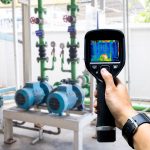Property Condition Assessment

During a PCA, our team of experienced professionals examine various aspects of the property, including the building envelope, structural elements, HVAC systems, electrical, and plumbing systems, roofing, parking lots, and more. We document the findings, take photographs, and provide detailed descriptions of the condition of each component.
The purpose of a PCA is to provide potential buyers, investors, or property owners with a clear understanding of the property's condition helping them make informed decisions about purchasing, leasing, or managing the property. The assessment report typically includes recommendations for any necessary repairs or maintenance, along with estimated costs.
Additionally, a Property Condition Assessment may also include a review of the property's compliance with local building codes and regulations. This ensures that the property meets the necessary safety and legal requirements.
Overall, a Property Condition Assessment provides valuable information and peace of mind to individuals or organizations involved in real estate transactions or property management. It helps them identify potential risks, estimate costs, and make informed decisions based on the property's true condition.
THERMAL IMAGING

- Detection of Issues: Thermal imaging can detect hidden issues such as moisture intrusion, air leaks, insulation deficiencies, and electrical hot spots that may not be visible to the naked eye. This can help identify potential problems early on and prevent costly repairs in the future.
- Energy Efficiency: Thermal imaging can identify areas of heat loss or air leakage, allowing for improved energy efficiency by sealing gaps and improving insulation. This can lead to lower energy bills and a more comfortable environment.
- Safety: Thermal imaging can detect overheating electrical components, which can help prevent electrical fires. It can also identify areas of potential mold growth due to moisture intrusion, improving indoor air quality and overall safety.
- Non-Invasive: Thermal imaging is a non-invasive tool that does not require any physical damage to the property. It can quickly scan a large area and provide valuable information without the need for invasive inspections.
Overall, the use of thermal imaging in a property inspection can provide a comprehensive assessment of their property's condition, helping them make informed decisions about maintenance, repairs, and improvements.
SEWER SCOPE

- Identify Potential Issues: A sewer scope inspection can help identify any potential issues or damage in the sewer line that may not be visible during a regular inspection. This can include blockages, leaks, root intrusions, or other problems that could lead to costly repairs in the future.
- Prevent Future Expenses: By conducting a sewer scope inspection before acquiring the property, you can potentially uncover any existing sewer line issues and address them before finalizing the purchase. This can help prevent unexpected expenses and repairs down the road.
- Negotiation Tool: If the sewer scope inspection reveals any issues with the sewer line, you can use this information as a negotiation tool with the seller. You may be able to negotiate repairs or a reduction in the purchase price to account for the cost of addressing the sewer line issues.
- Peace of Mind: Knowing the condition of the sewer line can give you peace of mind and confidence in your investment. You can move forward with the purchase with a better understanding of the property and any potential maintenance or repair needs.
Overall, conducting a sewer scope inspection is a proactive step that can help you make an informed decision and avoid potential problems related to the sewer system in the future.
Please don't hesitate to contact us with any questions you may have.